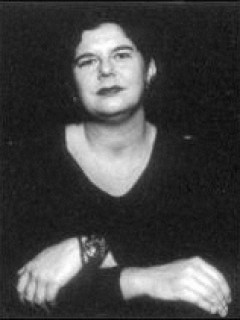Paul Vittles, RBA Research, mounted the most obvious challenge to focus group methodology. He offered a wide range of inspiring methodologies and insights into social and government research.
Since the agency I work for has been conducting research based on unorthodox research methods for quite a few years now, it felt like coming home to hear Paul speak. In search of truth, we should approach the everyday reality of those we research as closely as possible.
Martin Bontoft, who hails from design agency IDEO, did not claim to be seeking truth. For his part, he was after insights, preferably surprising ones. Sometimes, though, the most surprising insight is the most obvious.
We do need to keep looking beyond the obvious, but occasionally that’s exactly where the answer lies. Martin gave us a notion of how research can be applied in clever, yet self-evident solutions to practical problems. Pity he didn’t reveal the solution to the car wash problem he presented. We had visions of car wash disco parties.
Unlike Martin’s practical approach, Patricia Shaw offered us a glimpse into her theoretical framework for looking at conversations. As researchers, we try to grasp the truth by learning how things work and how things are related to one another by modelling and simulating large, complex patterns.
Patricia argues that we shouldn’t look for the big picture any more. If we let things go their own way we will get more insights. Reality is not discovered but rather constructed, since patterns tend to evolve merely by researching them. Her advice? Go with the flow. The more you steer, the more you interfere.
David Smith, Citigate DVL Smith, talked about the fact that all data is qualitative, and therefore that qualitative researcher skills are needed in all aspects of data analysis. Market research of the future will be a circular, holistic process, requiring high levels of talent and interpretation. Are we up for the job? Of course we are.
Charles Leadbeater, an ideas generator, explained why people are so pessimistic these days and how it affects research, responses and reality. We should be aware of how consumers respond to pessimism and how it can affect society. His message: to win you must be able to sell hope.
And hope is what we got from this day: that the winds of change are blowing. We may be struggling with the same old issues clients, respondents, time and money but not necessarily in the same old way.
This is true of Trends Day, too. Unlike former years, this year’s set-up was of an interactive kind. Attendees were invited, on a regular basis, to present their own opinions on various topics. We were grouped around round tables in clusters of six to eight like a focus group thus encouraging interactivity and stimulating networking. Sometimes we were requested to shift seats, to promote the spreading of opinions and to challenge our ‘individual’ truths.
The format wasn’t the only thing that changed, the way we looked at the truth did, too. At least, that was true for me. Should we look for the truth? Whose truth: the client’s, the moderator’s or the respondent’s? What if their truth is affected by research? It already has been: respondents have become marketing and research aware.
Where does that leave the moderator? Should we interact with participants (instead of respondents) in a collaborative way rather than filch information from them? This is what happened at Trends. We discussed matters instead of having one person pose questions and collect answers.
Should we stimulate and inspire participants as part of an ongoing interactive process or should we accept their truth as their reality and let it be, however micro and pessimistic? I say, let’s go with Paul: stick to their reality as closely as possible and listen to what they have to say instead of asking questions about things we want to hear.
Let’s also attend the next AQR Trends Day and not just for the excellent food and wine!


